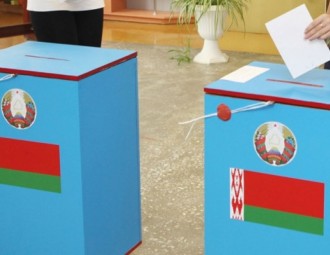Belarus’ president elections meet expectations, but intrigue about future development remains

Both the authorities and the opposition agree that the existing economic model should change. However, it’s difficult to predict whether economic reforms should be anticipated.
Post-election Belarusian society is significantly more united and not so stressed as it was after the two previous presidential campaigns. However, the intrigue has remained after the elections: whether the economic necessity would put an end to the long rule of President Lukashenka by inertia and prompt him to reforms. Meanwhile, the authorities do not allow their opponents to neither increase their political weight in society, nor influence within the existing political system.
The Central Electoral Commission has updated the election results according to which votes cast ‘against all’ have decreased.
Despite the humdrum presidential campaign of 2015 with a priori known results, the society is most curious about what domestic economic policy and foreign policy the authorities will adopt for the coming years.
It should be noted that both the authorities and the opposition have reached a consensus that the existing economic model should change. Election programmes of all presidential candidates envisaged economic reforms. Moreover, according to some analysts, candidate Lukashenka proposed the most liberal programme.
Nevertheless, it is difficult to predict whether economic reforms should be anticipated. While voting on the election day, the incumbent president did not give a clear answer about changing the country’s economic policy: “The issue is not about me, I am ready for any reforms, including the revolutionary ones, albeit it is not my style. I am ready to act as you wish”.
Due to the absolute predictability of the election results, society is much less frustrated and hopeless as compared with the aftermath of the previous presidential campaign. Critically minded voters have only made ironic comments with regard to the authorities in social networks and the level of political immigration is unlikely to rise.
In addition, the authorities have attempted to demonstrate a low level of support for the ‘Russian world’ ideas among Belarusians. For instance, according to official data, Belarusian Cossacks Ataman Ulahovich, who said he was the ‘Russian world’ supporter, won the smallest number of votes (1.67%).
Due to non-participation of traditional oppositional parties in the elections, their influence even on the protest electorate is trending towards reduction. In addition, amid the ‘Maidan’ scenario not being on the agenda, the opposition has not proposed any other coherent strategy to dismantle the existing regime, which has had a clear impact on its popular ratings.
Some observers have noted changes in the structure of support for President Lukashenka by growing support among previously most critical groups, such as, for example, young people and businesses. This, apparently, is one of the main factors why the titular opposition has lost in popularity.
In addition, analysts have emphasized that the only opposition candidate for the presidency, Tatsiana Karatkevich, managed to attract new ‘non-opposition’ electoral groups, albeit she has somewhat lost her positions among the protest electorate.
According the CEC, Tatsiana Karatkevich has won 4.4% of votes, which indicates that the authorities are not willing to accept the demands for domestic policy liberalization and institutionalization of the opposition in the representative bodies. Data collected by independent observers suggests a higher level of support for Tatsiana Karatkevich.
The authorities are likely to be pushed towards some changes in the economic policy. However, they may go only as far, as their ability to control protest moods in society stretches.
-
03.01
-
07.10
-
22.09
-
17.08
-
12.08
-
30.09








































